
When it comes to choosing an advertising method for your business, the choices are endless. One of these advertising means is not a stranger to the digital marketing world – it is known as PPC or pay-per-click advertising.
What is PPC?
Essentially, PPC is an internet advertising model that enables advertisers to pay publishers each and every time an ad is clicked on the publisher’s sites – hence, the name pay-per-click. This model is used to generate traffic to various websites. The advertiser in this instance would be the business owner running the ads or the PPC agency managing the ads while the publishers would usually be search engines or website owners.
Did you know that the first ad was launched in 1997 for AT&T’s “You Will” campaign?
Fast forward to this year, small-medium businesses (SMBs) invest as much as $10k on PPC monthly. It makes sense, knowing PPC generates twice the number of visitors compared to search engine optimization (SEO), its long-term partner in driving traffic to web pages.
Why does your business need PPC?
Well, besides generating traffic to your brand websites/product information or your client’s websites, PPC’s end goal is to drive sales and generate revenue.
-
PPC complements your SEO strategy
When done hand-in-hand, PPC and SEO complement each other – pay-per-click ads appear at the top of search engine result pages, meaning they are first seen by people who have typed in relevant keywords.
Through investing in an SEO strategy, the keywords that matter to users and potential customers will also be transparent and found much more organically.
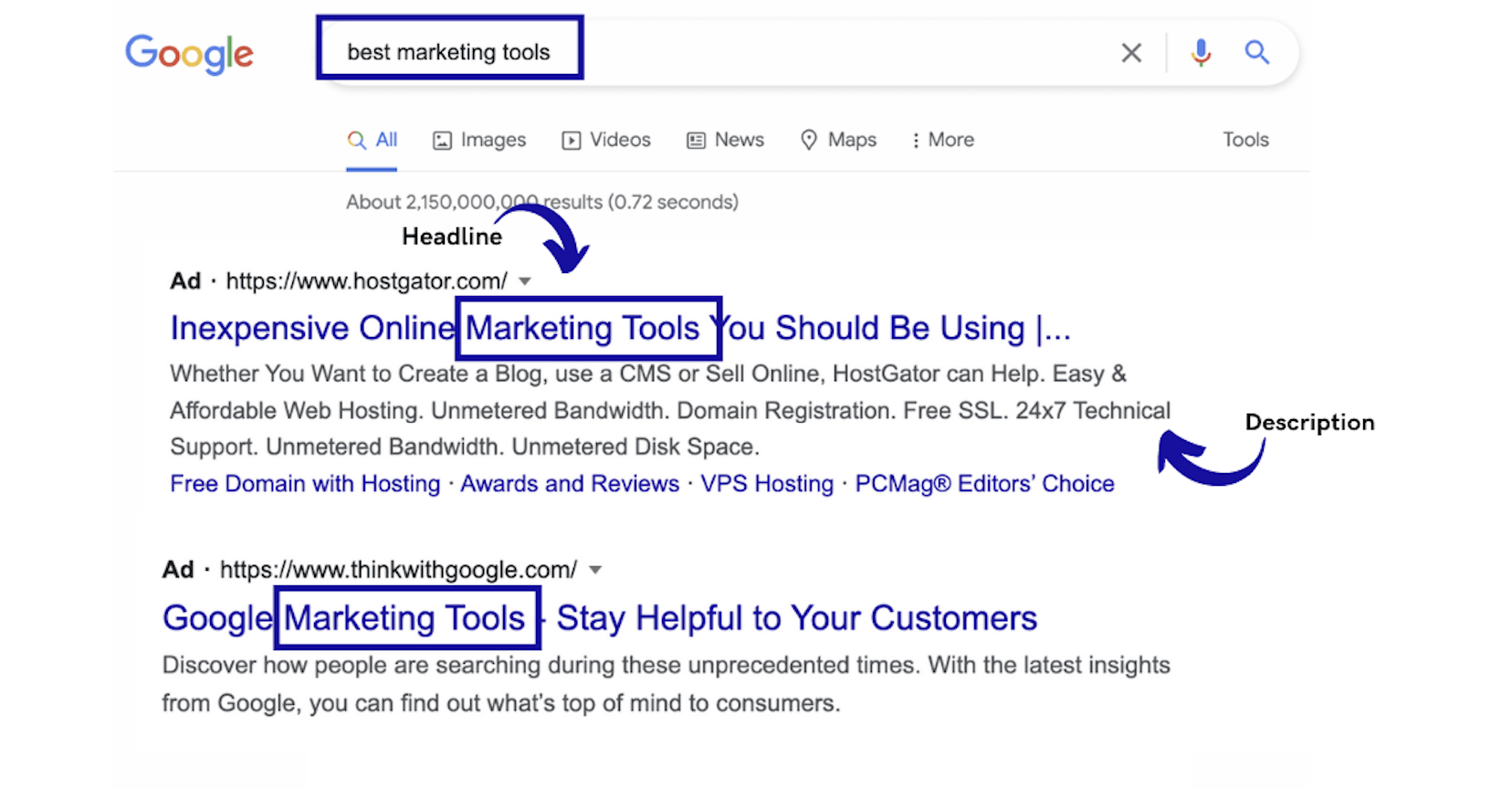
-
Easily measure and optimize your campaign performance
PPC can be very powerful for your online business, with easily accessible statistics, you are able to observe and optimize campaigns that are performing or not, and what traffic you are able to drive with the allocated budget.
-
A cost-effective method of advertising
PPC isn’t just effective, it’s also a cheaper way of advertising your business online. When someone clicks on the ad, that’s the only time you will be charged for it (when the advertising is successful).
How to ensure your PPC campaign performs well?
-
Include “negative keywords” in your PPC campaign.
Just as they are keywords to target what a customer might input into the search engine platforms when searching for your product, there are keywords that you can specifically omit from your campaign called “negative keywords”.
Here’s an example from a shoe brand. This allows advertisers to avoid audiences who are searching for “shoes running” or “running shoes”.
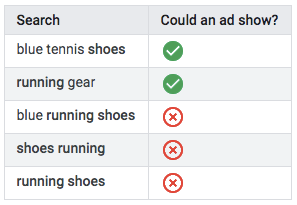
-
Use the “Iceberg Effect” to gain more control over your PPC campaign.
Your keyword is just the tip of the iceberg, but what’s hidden below is the uncontrollable search terms that aren’t specific to the keyword. The closer your ratio between search terms and keywords is the closer the relevance is, and that helps you with having a higher CTR.
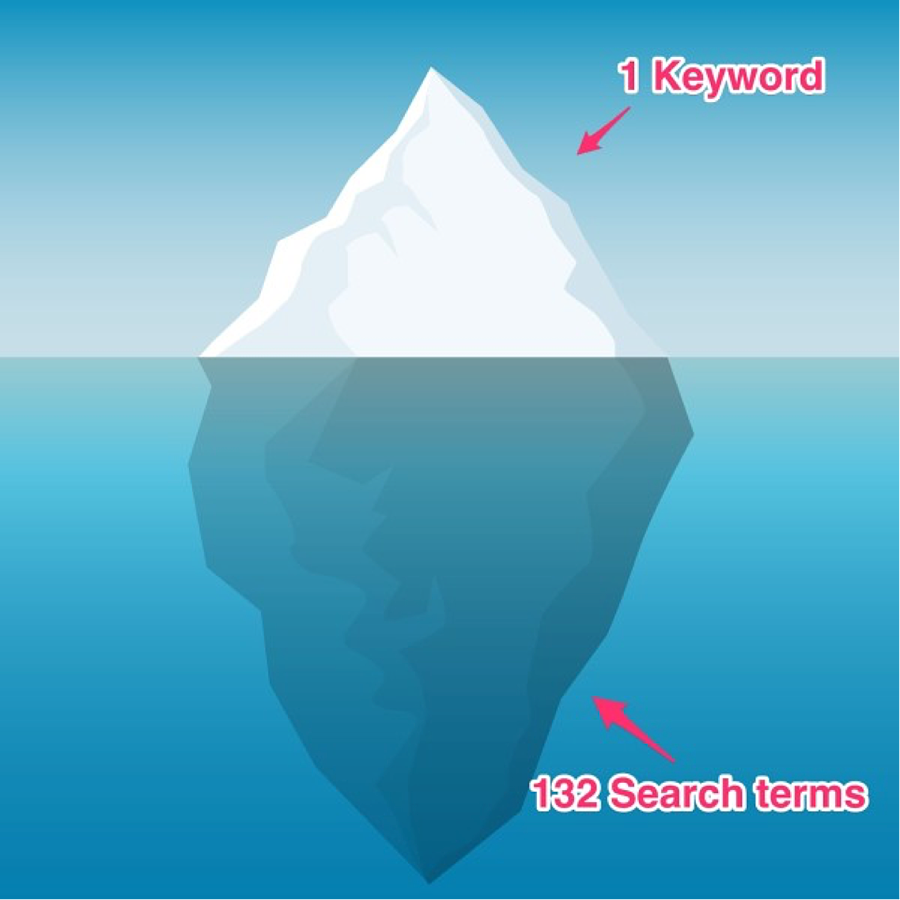
-
Keep tabs on conversions vs. sales.
Ensure you’re putting your money where it matters most. Although keyword #1 has a lower cost-per-conversion, keyword #2 has a much higher sales rate, which is making you more money.
-
Gauge your visitors’ intent on the CTA temperature scale.
Normally, the visitors that come from search tend to be warmer as compared to those who come from the display. The offers you give should match your PPC channel’s temperature to properly target these visitors with the CTA that appeals to them the most.
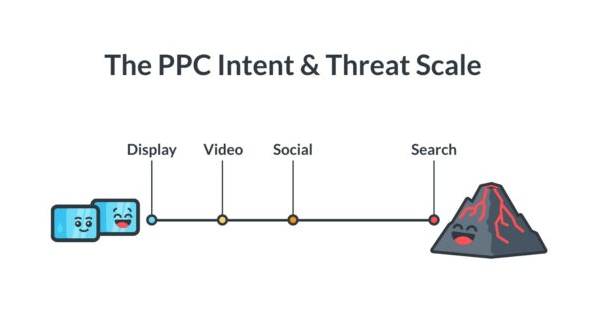
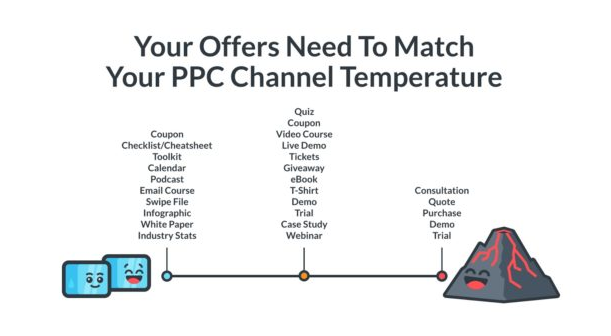
-
Use micro PPC conversions to break down the larger conversion into smaller pieces.
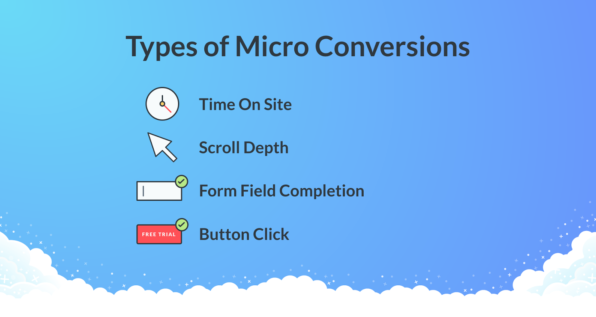
These are some of the micro-conversions we can use to analyze the route towards converting a visitor. By breaking down large conversions into smaller, controlled conversions, you are able to solve the conversion friction and ease the bottleneck of acquiring a customer’s purchase.
Sounds tough?
We’re here to show you it’s anything but!
Whether it’s tackling the iceberg effect, optimizing where your budget is best placed on whichever targeting options or looking at what’s driving CTR, let us come in to solve your digital concerns now.




